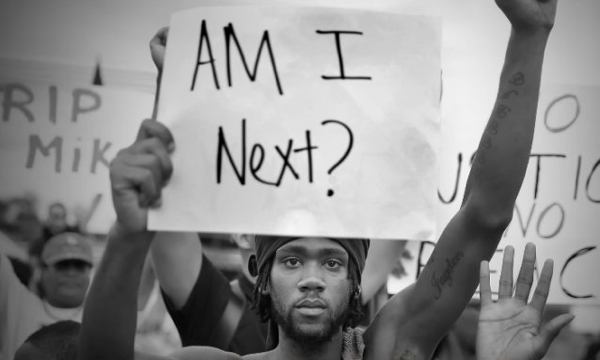Movie review by Greg Carlson
Featuring a deep bench of authorities, scholars, politicians, ex-convicts, and dissenters, Ava DuVernay’s outstanding documentary “13th” arrives on the eve of a national election. Put together in near secrecy and opening the New York Film Festival, “13th” uses as its starting point the titular reference to the United States Constitution’s amendment that abolished slavery – “except as a punishment for crime whereof the party shall have been duly convicted.” That minor addition, many of DuVernay’s interview subjects maintain, has been used to systematically oppress, criminalize, and incarcerate black Americans at a grotesquely disproportionate rate in the years since 1865.
DuVernay reminds us that America has about five percent of the world’s population but 25 percent of the world’s prisoners. Sobering statistics tallying the explosive growth in America’s prison population are represented onscreen in black-and-white motion graphics, and every time “criminal” is said in an interview, DuVernay and co-writer/editor Spencer Averick cut to an intertitle of the word to remind viewers of its loaded synonymity with African American “perpetrators.” The same parallels are traced to Richard Nixon’s use of “law and order” (another phrase resonating during this presidential election), and the later “war on drugs.” In one chilling audio clip, Reagan/Bush adviser Lee Atwater offers an ugly clinic on the socially acceptable use of coded language.
DuVernay makes the case that both the Democratic Party and the GOP have advanced candidates, policies, and legislation that perpetuate racist ideas. Hilary Clinton’s “super-predator” comment, along with discussion and context for the Violent Crime Control and Law Enforcement Act of 1994 signed by Bill Clinton, sit alongside a then-and-now montage of Donald Trump’s “good old days” invective targeted at rally protestors. The latter, toggling back and forth between Trump supporters harassing and haranguing people of color and images of white-on-black violence during the Civil Rights movement, speaks volumes.
A later section of the film focuses on the work of the American Legislative Exchange Council, a deeply conservative organization of corporate interests and legislators that propose policy for state sessions. ALEC works a lengthy set of initiatives that includes Stand Your Ground laws, mandated voter identification requirements, and perhaps most germane to DuVernay’s story, the privatization of prisons and the means to keep those prisons filled (via Three Strikes, Truth in Sentencing, and Tough on Crime models). An eye-opening description of increased home monitoring and digital surveillance of convicts paints a portrait of a terrifying future.
Like the equally stirring and interview-packed “The House I Live In,” Eugene Jarecki’s 2012 film addressing the prison-industrial complex, “13th” covers an astonishing amount of philosophical and historical territory without losing its grip or its focus. And while DuVernay’s underlying advocacy is embodied by speakers like Angela Davis, surprising commentary from unlikely participants such as Newt Gingrich attests to the director’s diligence, curiosity, and professionalism. “13th” makes a nice companion to National Book Award finalist “Stamped from the Beginning” by Ibram X. Kendi. Both works illuminate the sophistication of America’s capitalist reliance on discrimination-based systems that foster the proliferation of covert and overt oppression, and both are essential tools to help us understand the difference between All Lives Matter and Black Lives Matter.
